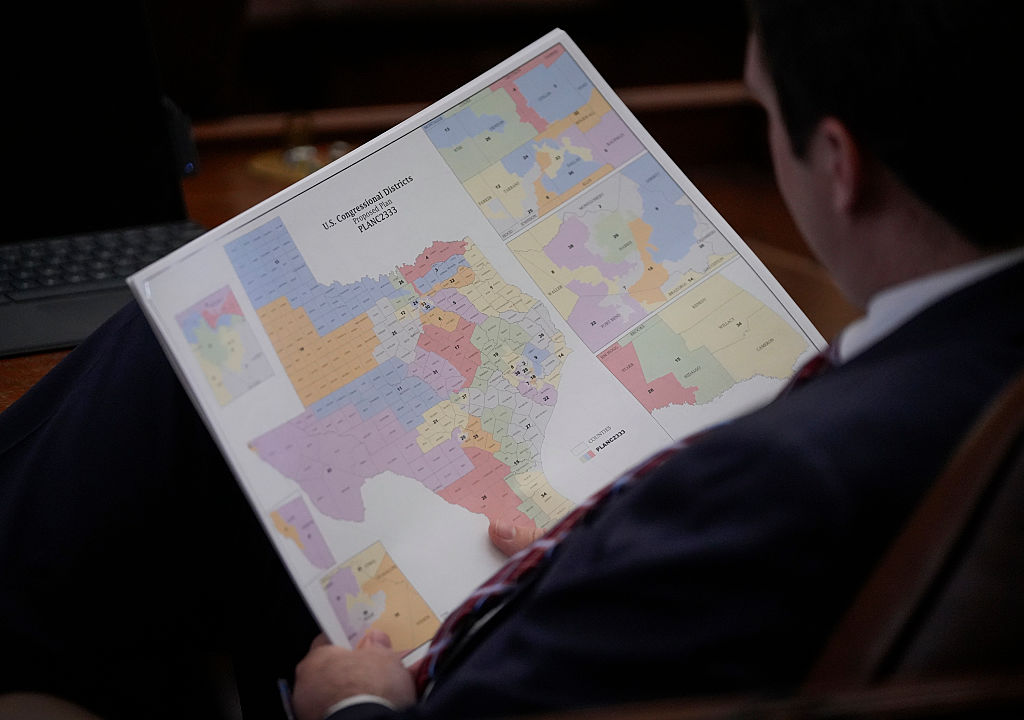Donald Trump is having a better year than Joe Biden, notwithstanding an indictment or two.
Both men hold commanding leads in the race for their parties’ presidential nominations. But the comparison works to Trump’s benefit: he isn’t quite an incumbent, while President Biden most definitely is.
Not since George H.W. Bush in 1992 has an incumbent president faced a challenge within his own party as serious as the one Biden faces from Robert F. Kennedy Jr. After weeks of unceasingly hostile press coverage, RFK Jr. still holds onto 15 percent of the Democratic primary vote.
Meanwhile, polling averages show Biden barely beating Trump in a prospective rematch next year. And a slim lead is no comfort at all, given that polling averages underestimated Trump’s support in both 2016 and 2020.
And if Trump’s legal problems should suddenly do him far more damage within the GOP than they have so far, Biden would fare no better if Ron DeSantis became the Republican nominee.
Unfortunately for the Florida governor, his own numbers against Biden are not so different from Trump’s as to give Republican voters an irresistible argument to switch loyalties in the primary.
Biden’s margin of victory in 2020 was slim to begin with. He won Arizona by just three-tenths of a percentage point, and Georgia by less than that. His margin in Pennsylvania was less than 1.2 percent. Last time, President Trump was saddled with the Covid crisis and Black Lives Matter protests. Now President Biden is saddled with inflation and war in Europe.
Biden certainly wants to remain president, and he’s rigged the Democratic primary calendar to frontload South Carolina, the state that set him on the path to the nomination three years ago. But Iowa and New Hampshire may not play along with Biden’s plan, even if their refusal leads to penalties from the Democratic National Committee. If Biden declines to campaign in states that jump ahead of South Carolina, he risks losing the first contests to RFK Jr. — or suffering embarrassment even if he wins, if his margins are less than overwhelming.
The president is old enough to remember what happened in 1968: Eugene McCarthy didn’t have to beat President Johnson to wreck his hopes of reelection. Revealing his weakness was more than enough. Should RFK do that to Biden, there are stronger contenders waiting to play the role that Kennedy’s father played in ’68, as the substitute for a withdrawn incumbent. California governor Gavin Newsom would like to be president sooner rather than later. So would Michigan governor Gretchen Whitmer, who scored a ten-point reelection victory last year.
Vice President Kamala Harris, whose odds against Trump or DeSantis no one favors, would not take kindly to being shoved aside in a race to replace Biden. But progressive voters may prove immune to white guilt when the White House is at stake.
After all, they did in 2020, when Harris fared poorly in the primaries. Whatever residual unease Democratic voters might feel could be assuaged by supporting a woman (albeit a white one) such as Whitmer. For Democrats, race is a means to power — if it becomes an obstacle to power, then racial representation gets jettisoned.
The political scientist Allan Lichtman argues that every presidential election is a referendum on the incumbent’s record and party, and he says thirteen evaluative keys suggest whether the public’s verdict will be favorable or not. If six or more keys turn against the incumbent, he (and his party) can expect to lose.
At least four, and arguably as many as seven, of Lichtman’s keys have already turned against Biden: Democrats hold fewer seats in the House of Representatives after last year’s midterms than they held after the previous (2018) midterms. The administration’s foreign policy is marred by the botched exit from Afghanistan. Biden is not a charismatic incumbent. And he confronts a growing scandal arising from his family’s business relationships with foreign entities and the apparent favoritism that the Justice Department has shown in treating his son Hunter leniently.
Lichtman’s keys are subject to interpretation, but it would be hard for even the most generous grader to deny that Biden is already failing four of the tests, and a harsher judge would say several more keys have turned.
Biden still has fifteen months before the election — assuming he makes it that far. He can bring his marks up a bit. But he can’t redo his midterms or undo the damage that has already accumulated. He is close to flunking out well before the finals, where he’ll be graded on the Russia-Ukraine war, real per capita growth compared to the previous two presidential terms, and whether the country is in recession, among other tough tests.
And Trump? All he has to do is stay out of jail long enough to get back into the Oval Office — though even if he went to jail, that might not stop his return to power. Prison poses no constitutional barrier to the presidency, though it would probably pose an electoral one. Trump’s own battleground-state margins in 2016 were not any safer than Biden’s in 2020. But next year will be a referendum on Biden, not Trump, assuming Lichtman’s theory holds.
He’s in serious legal jeopardy, yet Donald J. Trump has reason to think of himself as the once and future president, if Joe Biden and the Republican primary field are all that stand in his way.
This article was originally published in The Spectator’s August 2023 World edition.

























